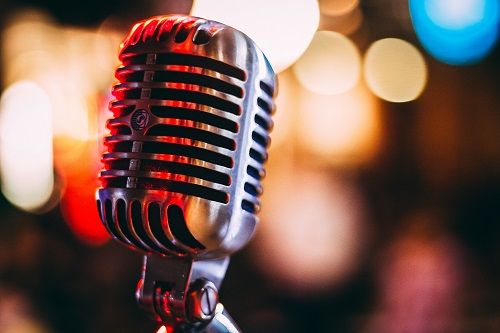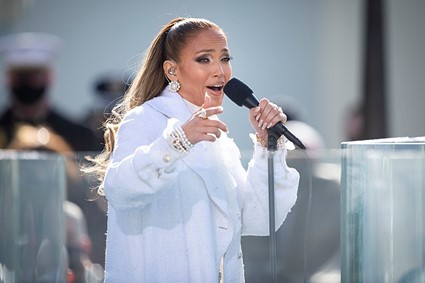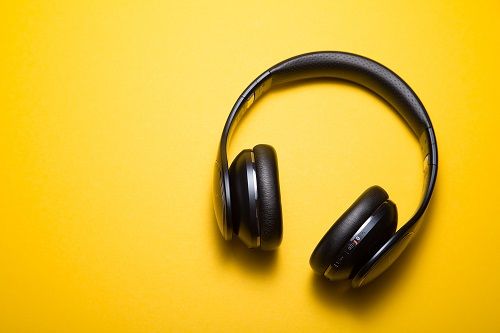Spanish flamenco dancers | Spain traditional dance flamenco
Spanish flamenco dancers. Discover the most important figures in Spain traditional dance flamenco and how they rose to stardom in flamenco.

If Spain is known internationally for anything, it is for flamenco. Although it is a dance that is mainly practiced in Andalusia and not by all Spaniards, outside our borders it is a major attraction for tourists.
Flamenco dancing is one of the fundamental pillars of this Andalusian art, along with singing and guitar playing. Over the centuries, numerous Spanish flamenco dancers have left their mark with their technique, personality, and ability to transform this discipline into something magnificent.
That's why we at don Quijote want to introduce you to some of the essential figures who have shaped this dance from its origins to the present day.
Vicente Escudero (1888-1980)
Vicente Escudero was one of the great innovators of flamenco dance in the 20th century. In addition to being a virtuoso, Escudero conceived flamenco as a dance with its own artistic identity, developing his famous Decalogue of the Good Dancer.
He sought purity and sobriety, avoiding theatrical exaggeration in each performance. His interpretation of the farruca is remembered as one of the milestones of his personal style, austere and deeply expressive.
Faíco (Francisco Manzano Heredia, 1932-1993)
Francisco Manzano Heredia, better known as Faíco, stood out for his strength and elegance. This gypsy dancer belonged to the Pelaos family and was a leading figure in the tablaos during the middle decades of the 20th century. He also contributed new forms to the dance, especially in styles such as the farruca and the garrotín. His style combined great technical precision with an overwhelming stage presence.
Carmen Amaya (1913-1963)
Considered one of the greatest Spanish flamenco dancers in history, Carmen Amaya revolutionized this dance with her wild energy, her mastery of zapateado (footwork) and her way of moving across the stage.
Amaya broke gender stereotypes, dancing with the same power as the men, which led her to become an international figure who took flamenco to stages around the world. You can learn more about Carmen Amaya in this video: Carmen Amaya: The dancer who shook flamenco.
Antonio Gades (1936-2004)
Gades was a famous dancer and choreographer who played a key role in the professionalization of stage flamenco. He conceived dance as a narrative and theatrical art, creating productions that integrated dance, drama, and music, such as Bodas de Sangre, Carmen, and El Amor Brujo. He also brought flamenco to the cinema, introducing it to new audiences. His style was characterized by refinement, restraint, and a deep respect for the essence of flamenco.
Merche Esmeralda (b. 1947)
Merche Esmeralda represents the generation that took flamenco from the tablao to the academic stage. She was a member of the Spanish National Ballet and toured internationally extensively.
Her dancing combines elegance, technical precision, and musicality. She has also played an important role as a teacher, training new generations of Spanish flamenco dancers.
Pastora Imperio (1889-1979)
She was one of the first great stars of stage flamenco. Pastora Imperio is known for her elegance, majestic presence, and expressiveness. She also helped shape the stage style of flamenco in the first half of the 20th century. She influenced an entire generation and became a symbol of classical flamenco.
Eva Yerbabuena (b. 1970)
One of the most respected flamenco dancers today is Eva Yerbabuena. Her work combines deep tradition with a constant search for choreographic innovation. This Spanish flamenco dancer is known for her emotional intensity, expressiveness, and use of her entire body in her choreography. She has taken flamenco to international stages and influenced many contemporary artists.
Sara Baras (b. 1971)
Known for her impeccable technique and great sense of rhythm, Sara Baras has managed to popularize flamenco around the world without losing its roots. Her shows are large-scale productions that combine classical elements with modern staging, appealing to both specialists and new audiences. She has been instrumental in keeping flamenco alive and constantly evolving in the 21st century.
Rafael Amargo (b. 1975)
Rafael Amargo is a dancer and choreographer from Granada who trained in classical flamenco but soon began to mix it with contemporary dance and theater. His shows, such as Poeta en Nueva York, have been performed internationally. He is known for his great stage energy, charisma, and willingness to break the mold within flamenco.
Joaquín Cortés (b. 1969)
Joaquín Cortés began his career with the Spanish National Ballet and went on to become one of the world's most famous Spanish flamenco dancers. His style combines flamenco with contemporary dance, bringing spectacular stage presence, drama, and great technique. He has taken flamenco to major international theaters, bringing it to a wide range of audiences.
Farruquito (b. 1982)
A descendant of the Farruco flamenco dynasty, Spanish flamenco dancer Farruquito is considered one of the greatest exponents of pure flamenco today. His dancing is characterized by its power, technical mastery, and fidelity to the Andalusian gypsy tradition.
Antonio Canales (b. 1961)
Antonio Canales trained at the Spanish National Ballet and later founded his own company. Canales is renowned for his strength, character, and enormous stage presence. He has renewed the choreographic language of flamenco and has been part of seminal shows, as well as being internationally awarded and recognized.
All these artists share certain characteristics that define them as Spanish flamenco dancers: great technical mastery, a strong artistic personality, and an ability to convey emotion. Flamenco dance remains a living art form, in which tradition and innovation coexist. If you want to discover more about flamenco or improve your language skills, come to don Quijote to learn Spanish in Spain and fall even more in love with this dance.

 <svg xmlns="http://www.w3.org/2000/svg" width="62" height="62" viewBox="0 0 62 62"><metadata><?xpacket begin="" id="W5M0MpCehiHzreSzNTczkc9d"?><x:xmpmeta xmlns:x="adobe:ns:meta/" x:xmptk="Adobe XMP Core 5.6-c138 79.159824, 2016/09/14-01:09:01"><rdf:RDF xmlns:rdf="http://www.w3.org/1999/02/22-rdf-syntax-ns#"><rdf:Description rdf:about=""/></rdf:RDF></x:xmpmeta><?xpacket end="w"?></metadata><defs><style>.cls-1 {fill: #d2283d; fill-rule: evenodd;}</style></defs><path id="Forma_1" data-name="Forma 1" class="cls-1" d="M1116.73,1102.23h-45.46a1.046,1.046,0,0,0-1.04,1.04v45.46a1.046,1.046,0,0,0,1.04,1.04h45.46a1.046,1.046,0,0,0,1.04-1.04v-45.46A1.046,1.046,0,0,0,1116.73,1102.23Zm-36.66,25.4a3.767,3.767,0,0,1-2.6-3.7c0-2.47,1.69-4.72,3.78-5.02a1.09,1.09,0,0,0,.88-1.09,4.572,4.572,0,0,1,5.91-4.38,1.052,1.052,0,0,0,.88-0.13,1.016,1.016,0,0,0,.45-0.76,4.576,4.576,0,0,1,8.85-1.12,1.019,1.019,0,0,0,.7.64,1.039,1.039,0,0,0,.93-0.19,4.5,4.5,0,0,1,2.9-1.04,4.586,4.586,0,0,1,4.58,4.58,4.478,4.478,0,0,1-.56,2.18,1.08,1.08,0,0,0-.05.88,1.054,1.054,0,0,0,.64.6,4.579,4.579,0,0,1,.43,8.55,1.038,1.038,0,0,0-.59,1.18,4.174,4.174,0,0,1,.13,1.04,4.592,4.592,0,0,1-4.58,4.58,4.285,4.285,0,0,1-3.26-1.29,1.062,1.062,0,0,0-1.07-.27,1.028,1.028,0,0,0-.7.85,4.629,4.629,0,0,1-1.97,3.12,0.981,0.981,0,0,0-.36.2,3.1,3.1,0,0,1-1.39.33,3.292,3.292,0,0,1-1.46-.37,1.008,1.008,0,0,0-.23-0.12,4.539,4.539,0,0,1-2.17-3.16,1.044,1.044,0,0,0-.7-0.85,1.248,1.248,0,0,0-.32-0.05,1.07,1.07,0,0,0-.75.32,4.285,4.285,0,0,1-3.26,1.29,4.592,4.592,0,0,1-4.58-4.58,4.174,4.174,0,0,1,.13-1.04A1.038,1.038,0,0,0,1080.07,1127.63Zm12.9,11.7a5.067,5.067,0,0,0,1.03.1,4.931,4.931,0,0,0,1.03-.1v8.37h-2.06v-8.37h0Zm22.73,8.37h-18.6v-9.28a6.572,6.572,0,0,0,2.21-2.8,6.813,6.813,0,0,0,3.44.87,6.649,6.649,0,0,0,6.64-6.64,5.74,5.74,0,0,0-.04-0.71,36.4,36.4,0,0,1,.04-13.72,6.651,6.651,0,0,0-6.64-6.65,6.748,6.748,0,0,0-3.15.79,6.647,6.647,0,0,0-12.08,1.67,5.34,5.34,0,0,0-.81-0.05,6.655,6.655,0,0,0-6.59,5.87,7.176,7.176,0,0,0-4.72,6.88,5.719,5.719,0,0,0,3.1,5.23c-0.02.23-.04,0.46-0.04,0.69a6.756,6.756,0,0,0,10.09,5.76,6.583,6.583,0,0,0,2.35,2.83v9.26h-18.6v-43.4h43.4v43.4Zm8.27,1.03a4.13,4.13,0,0,0-2.07-3.56v-38.34a4.13,4.13,0,0,0,2.07-3.56,4.079,4.079,0,0,1,1.03-4.14,4.131,4.131,0,0,0-4.13-4.13,4.079,4.079,0,0,1-4.14,1.03,4.13,4.13,0,0,0-3.56,2.07h-38.34a217.159,217.159,0,0,1-7.7-3.1,4.13,4.13,0,0,0-2.91,7.06,4.082,4.082,0,0,0-.19,1.21,4.13,4.13,0,0,0,2.07,3.56v38.34a4.13,4.13,0,0,0-2.07,3.56,4.082,4.082,0,0,0,.19,1.21,4.13,4.13,0,0,0,2.91,7.06,4.089,4.089,0,0,0,2.93-1.22,4.065,4.065,0,0,0,4.77-1.88h38.34a4.13,4.13,0,0,0,3.56,2.07,4.079,4.079,0,0,1,4.14,1.03,4.131,4.131,0,0,0,4.13-4.13A4.079,4.079,0,0,1,1123.97,1148.73Zm-3.1,6.2a2.051,2.051,0,0,1-1.74-.96,1.038,1.038,0,0,0-.88-0.48,1.009,1.009,0,0,0-.5.13,2.061,2.061,0,0,1-2.95-1.1,1.048,1.048,0,0,0-.98-0.69h-39.64a1.048,1.048,0,0,0-.98.69,2.053,2.053,0,0,1-2.94,1.1,1.042,1.042,0,0,0-1.39.35,2.059,2.059,0,1,1-2.84-2.84,1.042,1.042,0,0,0,.35-1.39,1.951,1.951,0,0,1-.28-1.01,2.053,2.053,0,0,1,1.38-1.93,1.048,1.048,0,0,0,.69-0.98v-39.64a1.048,1.048,0,0,0-.69-0.98,2.053,2.053,0,0,1-1.38-1.93,1.951,1.951,0,0,1,.28-1.01,1.042,1.042,0,0,0-.35-1.39,2.059,2.059,0,1,1,2.84-2.84,1.042,1.042,0,0,0,1.39.35,2.051,2.051,0,0,1,2.94,1.1,1.048,1.048,0,0,0,.98.69h39.64a1.048,1.048,0,0,0,.98-0.69,2.061,2.061,0,0,1,2.95-1.1,1.032,1.032,0,0,0,1.38-.35,2.059,2.059,0,1,1,2.84,2.84,1.042,1.042,0,0,0-.35,1.39,1.951,1.951,0,0,1,.28,1.01,2.053,2.053,0,0,1-1.38,1.93,1.048,1.048,0,0,0-.69.98v39.64a1.048,1.048,0,0,0,.69.98,2.053,2.053,0,0,1,1.38,1.93,1.951,1.951,0,0,1-.28,1.01,1.042,1.042,0,0,0,.35,1.39A2.059,2.059,0,0,1,1120.87,1154.93Zm-18.99-40.57a1.35,1.35,0,0,1,1-.31,1.406,1.406,0,0,1,1.24,1.39,1.37,1.37,0,0,1-.16.63l-0.86,1.58a2.687,2.687,0,0,0-.14,2.33,2.725,2.725,0,0,0,1.7,1.6l1.6,0.51a1.513,1.513,0,0,1,1.03,1.01,1.39,1.39,0,0,1-.79,1.59,1.034,1.034,0,0,0,.42,1.98,0.978,0.978,0,0,0,.41-0.09,3.446,3.446,0,0,0,1.97-3.96,3.573,3.573,0,0,0-2.4-2.49l-1.6-.52a0.688,0.688,0,0,1-.39-0.97l0.86-1.59a3.328,3.328,0,0,0,.42-1.58,3.437,3.437,0,0,0-5.62-2.71A1.034,1.034,0,0,0,1101.88,1114.36Zm0.87,18.93a3.453,3.453,0,0,0,3.44-3.44,3.036,3.036,0,0,0-.1-0.78,1.031,1.031,0,1,0-2.01.46,1.272,1.272,0,0,1,.04.32,1.379,1.379,0,0,1-1.37,1.37,1.116,1.116,0,0,1-.94-0.29,1.036,1.036,0,0,0-1.5,1.43A3.255,3.255,0,0,0,1102.75,1133.29Zm-18.47-14.52h0.03a1.034,1.034,0,0,0,1.03-.99,1.407,1.407,0,0,1,1.77-1.27,1.027,1.027,0,0,0,1.29-.68,1.042,1.042,0,0,0-.68-1.3,3.481,3.481,0,0,0-1.01-.15,3.422,3.422,0,0,0-3.43,3.33A1.022,1.022,0,0,0,1084.28,1118.77Zm0.83,14.52a3.255,3.255,0,0,0,2.44-.93,1.036,1.036,0,0,0-1.5-1.43,1.154,1.154,0,0,1-.94.29,1.372,1.372,0,0,1-1.37-1.37,1.148,1.148,0,0,1,.04-0.31,1.033,1.033,0,1,0-2.01-.48,3.112,3.112,0,0,0-.1.79A3.446,3.446,0,0,0,1085.11,1133.29Zm1.03-11.16a1.034,1.034,0,0,0,.85,1.19,0.985,0.985,0,0,0,.17.02,1.038,1.038,0,0,0,1.02-.87,3.766,3.766,0,0,1,3.45-3.15,1.033,1.033,0,0,0-.15-2.06A5.819,5.819,0,0,0,1086.14,1122.13Zm5.98,6.22a1.045,1.045,0,0,0,1.01.79,0.986,0.986,0,0,0,.24-0.03,5.831,5.831,0,0,0,4.47-5.68,1.035,1.035,0,0,0-2.07,0,3.757,3.757,0,0,1-2.88,3.67A1.036,1.036,0,0,0,1092.12,1128.35Z" transform="translate(-1063 -1095)"/></svg>
<svg xmlns="http://www.w3.org/2000/svg" width="62" height="62" viewBox="0 0 62 62"><metadata><?xpacket begin="" id="W5M0MpCehiHzreSzNTczkc9d"?><x:xmpmeta xmlns:x="adobe:ns:meta/" x:xmptk="Adobe XMP Core 5.6-c138 79.159824, 2016/09/14-01:09:01"><rdf:RDF xmlns:rdf="http://www.w3.org/1999/02/22-rdf-syntax-ns#"><rdf:Description rdf:about=""/></rdf:RDF></x:xmpmeta><?xpacket end="w"?></metadata><defs><style>.cls-1 {fill: #d2283d; fill-rule: evenodd;}</style></defs><path id="Forma_1" data-name="Forma 1" class="cls-1" d="M1116.73,1102.23h-45.46a1.046,1.046,0,0,0-1.04,1.04v45.46a1.046,1.046,0,0,0,1.04,1.04h45.46a1.046,1.046,0,0,0,1.04-1.04v-45.46A1.046,1.046,0,0,0,1116.73,1102.23Zm-36.66,25.4a3.767,3.767,0,0,1-2.6-3.7c0-2.47,1.69-4.72,3.78-5.02a1.09,1.09,0,0,0,.88-1.09,4.572,4.572,0,0,1,5.91-4.38,1.052,1.052,0,0,0,.88-0.13,1.016,1.016,0,0,0,.45-0.76,4.576,4.576,0,0,1,8.85-1.12,1.019,1.019,0,0,0,.7.64,1.039,1.039,0,0,0,.93-0.19,4.5,4.5,0,0,1,2.9-1.04,4.586,4.586,0,0,1,4.58,4.58,4.478,4.478,0,0,1-.56,2.18,1.08,1.08,0,0,0-.05.88,1.054,1.054,0,0,0,.64.6,4.579,4.579,0,0,1,.43,8.55,1.038,1.038,0,0,0-.59,1.18,4.174,4.174,0,0,1,.13,1.04,4.592,4.592,0,0,1-4.58,4.58,4.285,4.285,0,0,1-3.26-1.29,1.062,1.062,0,0,0-1.07-.27,1.028,1.028,0,0,0-.7.85,4.629,4.629,0,0,1-1.97,3.12,0.981,0.981,0,0,0-.36.2,3.1,3.1,0,0,1-1.39.33,3.292,3.292,0,0,1-1.46-.37,1.008,1.008,0,0,0-.23-0.12,4.539,4.539,0,0,1-2.17-3.16,1.044,1.044,0,0,0-.7-0.85,1.248,1.248,0,0,0-.32-0.05,1.07,1.07,0,0,0-.75.32,4.285,4.285,0,0,1-3.26,1.29,4.592,4.592,0,0,1-4.58-4.58,4.174,4.174,0,0,1,.13-1.04A1.038,1.038,0,0,0,1080.07,1127.63Zm12.9,11.7a5.067,5.067,0,0,0,1.03.1,4.931,4.931,0,0,0,1.03-.1v8.37h-2.06v-8.37h0Zm22.73,8.37h-18.6v-9.28a6.572,6.572,0,0,0,2.21-2.8,6.813,6.813,0,0,0,3.44.87,6.649,6.649,0,0,0,6.64-6.64,5.74,5.74,0,0,0-.04-0.71,36.4,36.4,0,0,1,.04-13.72,6.651,6.651,0,0,0-6.64-6.65,6.748,6.748,0,0,0-3.15.79,6.647,6.647,0,0,0-12.08,1.67,5.34,5.34,0,0,0-.81-0.05,6.655,6.655,0,0,0-6.59,5.87,7.176,7.176,0,0,0-4.72,6.88,5.719,5.719,0,0,0,3.1,5.23c-0.02.23-.04,0.46-0.04,0.69a6.756,6.756,0,0,0,10.09,5.76,6.583,6.583,0,0,0,2.35,2.83v9.26h-18.6v-43.4h43.4v43.4Zm8.27,1.03a4.13,4.13,0,0,0-2.07-3.56v-38.34a4.13,4.13,0,0,0,2.07-3.56,4.079,4.079,0,0,1,1.03-4.14,4.131,4.131,0,0,0-4.13-4.13,4.079,4.079,0,0,1-4.14,1.03,4.13,4.13,0,0,0-3.56,2.07h-38.34a217.159,217.159,0,0,1-7.7-3.1,4.13,4.13,0,0,0-2.91,7.06,4.082,4.082,0,0,0-.19,1.21,4.13,4.13,0,0,0,2.07,3.56v38.34a4.13,4.13,0,0,0-2.07,3.56,4.082,4.082,0,0,0,.19,1.21,4.13,4.13,0,0,0,2.91,7.06,4.089,4.089,0,0,0,2.93-1.22,4.065,4.065,0,0,0,4.77-1.88h38.34a4.13,4.13,0,0,0,3.56,2.07,4.079,4.079,0,0,1,4.14,1.03,4.131,4.131,0,0,0,4.13-4.13A4.079,4.079,0,0,1,1123.97,1148.73Zm-3.1,6.2a2.051,2.051,0,0,1-1.74-.96,1.038,1.038,0,0,0-.88-0.48,1.009,1.009,0,0,0-.5.13,2.061,2.061,0,0,1-2.95-1.1,1.048,1.048,0,0,0-.98-0.69h-39.64a1.048,1.048,0,0,0-.98.69,2.053,2.053,0,0,1-2.94,1.1,1.042,1.042,0,0,0-1.39.35,2.059,2.059,0,1,1-2.84-2.84,1.042,1.042,0,0,0,.35-1.39,1.951,1.951,0,0,1-.28-1.01,2.053,2.053,0,0,1,1.38-1.93,1.048,1.048,0,0,0,.69-0.98v-39.64a1.048,1.048,0,0,0-.69-0.98,2.053,2.053,0,0,1-1.38-1.93,1.951,1.951,0,0,1,.28-1.01,1.042,1.042,0,0,0-.35-1.39,2.059,2.059,0,1,1,2.84-2.84,1.042,1.042,0,0,0,1.39.35,2.051,2.051,0,0,1,2.94,1.1,1.048,1.048,0,0,0,.98.69h39.64a1.048,1.048,0,0,0,.98-0.69,2.061,2.061,0,0,1,2.95-1.1,1.032,1.032,0,0,0,1.38-.35,2.059,2.059,0,1,1,2.84,2.84,1.042,1.042,0,0,0-.35,1.39,1.951,1.951,0,0,1,.28,1.01,2.053,2.053,0,0,1-1.38,1.93,1.048,1.048,0,0,0-.69.98v39.64a1.048,1.048,0,0,0,.69.98,2.053,2.053,0,0,1,1.38,1.93,1.951,1.951,0,0,1-.28,1.01,1.042,1.042,0,0,0,.35,1.39A2.059,2.059,0,0,1,1120.87,1154.93Zm-18.99-40.57a1.35,1.35,0,0,1,1-.31,1.406,1.406,0,0,1,1.24,1.39,1.37,1.37,0,0,1-.16.63l-0.86,1.58a2.687,2.687,0,0,0-.14,2.33,2.725,2.725,0,0,0,1.7,1.6l1.6,0.51a1.513,1.513,0,0,1,1.03,1.01,1.39,1.39,0,0,1-.79,1.59,1.034,1.034,0,0,0,.42,1.98,0.978,0.978,0,0,0,.41-0.09,3.446,3.446,0,0,0,1.97-3.96,3.573,3.573,0,0,0-2.4-2.49l-1.6-.52a0.688,0.688,0,0,1-.39-0.97l0.86-1.59a3.328,3.328,0,0,0,.42-1.58,3.437,3.437,0,0,0-5.62-2.71A1.034,1.034,0,0,0,1101.88,1114.36Zm0.87,18.93a3.453,3.453,0,0,0,3.44-3.44,3.036,3.036,0,0,0-.1-0.78,1.031,1.031,0,1,0-2.01.46,1.272,1.272,0,0,1,.04.32,1.379,1.379,0,0,1-1.37,1.37,1.116,1.116,0,0,1-.94-0.29,1.036,1.036,0,0,0-1.5,1.43A3.255,3.255,0,0,0,1102.75,1133.29Zm-18.47-14.52h0.03a1.034,1.034,0,0,0,1.03-.99,1.407,1.407,0,0,1,1.77-1.27,1.027,1.027,0,0,0,1.29-.68,1.042,1.042,0,0,0-.68-1.3,3.481,3.481,0,0,0-1.01-.15,3.422,3.422,0,0,0-3.43,3.33A1.022,1.022,0,0,0,1084.28,1118.77Zm0.83,14.52a3.255,3.255,0,0,0,2.44-.93,1.036,1.036,0,0,0-1.5-1.43,1.154,1.154,0,0,1-.94.29,1.372,1.372,0,0,1-1.37-1.37,1.148,1.148,0,0,1,.04-0.31,1.033,1.033,0,1,0-2.01-.48,3.112,3.112,0,0,0-.1.79A3.446,3.446,0,0,0,1085.11,1133.29Zm1.03-11.16a1.034,1.034,0,0,0,.85,1.19,0.985,0.985,0,0,0,.17.02,1.038,1.038,0,0,0,1.02-.87,3.766,3.766,0,0,1,3.45-3.15,1.033,1.033,0,0,0-.15-2.06A5.819,5.819,0,0,0,1086.14,1122.13Zm5.98,6.22a1.045,1.045,0,0,0,1.01.79,0.986,0.986,0,0,0,.24-0.03,5.831,5.831,0,0,0,4.47-5.68,1.035,1.035,0,0,0-2.07,0,3.757,3.757,0,0,1-2.88,3.67A1.036,1.036,0,0,0,1092.12,1128.35Z" transform="translate(-1063 -1095)"/></svg>
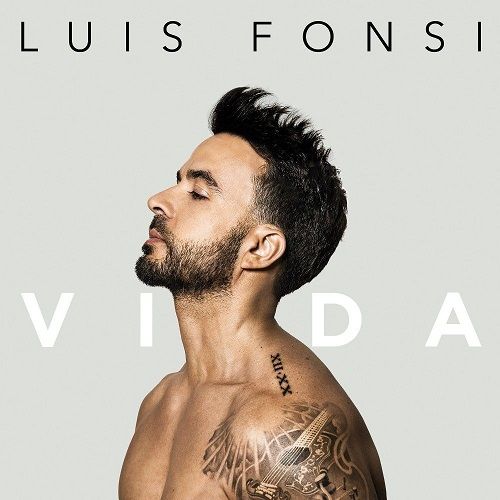


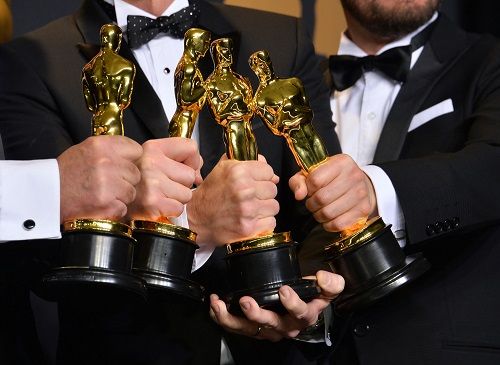



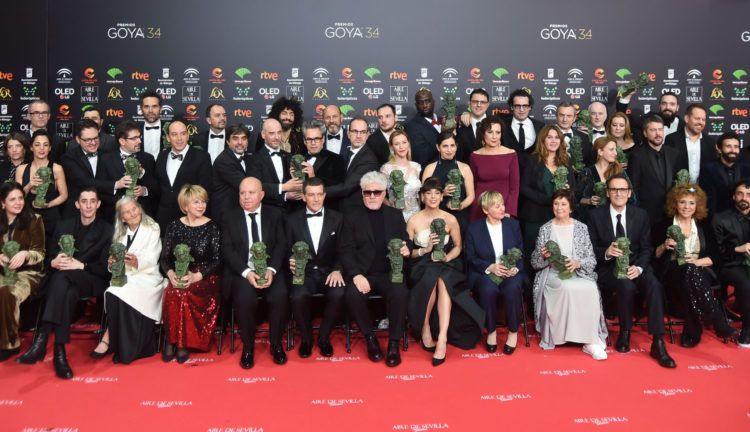
 Almodovar Movies Keep Winning
Almodovar Movies Keep Winning


